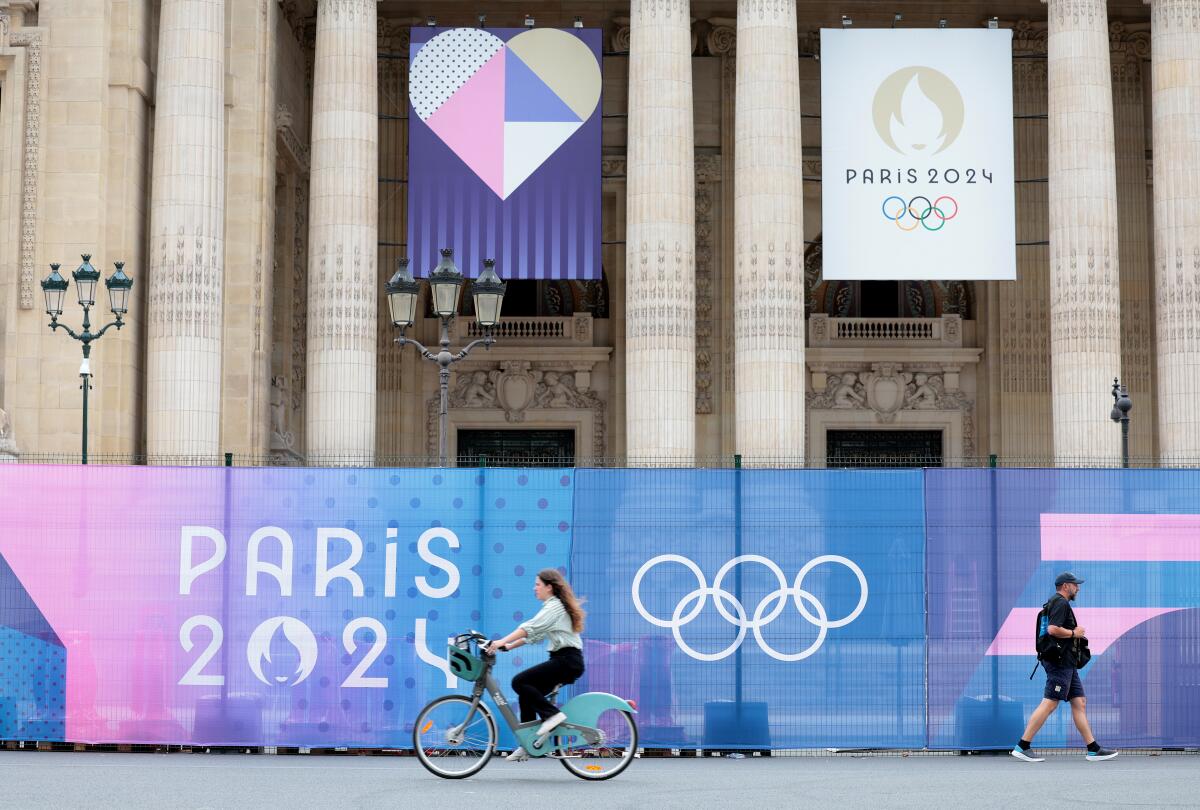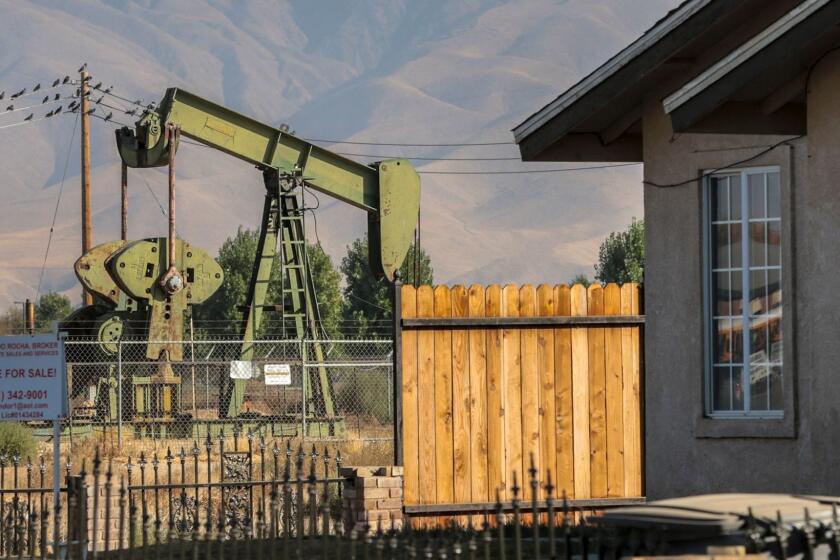Editorial: No A/C for Olympic athletes in Paris? Good intention, but bad idea

The organizers of the Paris Olympics, which began Friday, have done a lot of things right in their efforts to make the 2024 Summer Games the greenest in history.
They are using mostly existing stadiums and sports venues instead of building new ones, locating them as close as possible to the Olympic village to cut travel miles. They’re taking measures to cut food waste and single-use plastics and to offer local, plant-based food to slash the Games’ carbon footprint.
One thing they got wrong, though, was expecting athletes to go without air conditioning in their rooms.
Editorial: Trump and oil companies are lying to you about electric cars to serve their own interests
There is no federal ban on gas-powered cars. Trump and the oil companies are pushing that lie for their own self-serving agendas.
Instead of installing A/C to keep housing safe and comfortable for thousands of athletes staying in the Olympic village, organizers planned to rely on a geothermal system that pipes in cool water underneath the floors. But their assurances that the system was capable of keeping indoor temperatures about 11 degrees cooler than outdoors did not inspire much confidence during a year that’s on track to be the hottest on record.
The plan prompted concerns from many countries — including the United States — that runners, gymnasts, swimmers and other athletes in the biggest competition of their lives would not get the rest and recovery they need to perform their best as temperatures reach the upper 80s and 90s. As Matt Carroll with the Australian Olympic Committee put it last year, “We’re not going for a picnic.”
It’s hard to think of anything more important than fighting climate change, and conservation has an important role in that battle. But organizers’ insistence on a A/C-free Olympics was unnecessarily austere and shortsighted — a case of good intentions gone too far. And it’s an odd position, given that France has a pretty low-carbon electrical grid due to most of its power coming from nuclear as well as experience with devastating heat waves, such as the ones that killed 5,000 people last summer and in 2003.
The federal government must revise its outdated view of what constitutes a disaster now that the planet is about 2.5 degrees hotter than preindustrial times.
In the lead-up to the Games, French officials were uncompromising in their view that A/C would be unnecessary and unacceptable because of the impact of energy consumption on the climate. “I have a lot of respect for the comfort of athletes, but I think a lot more about the survival of humanity,” Paris Mayor Anne Hidalgo told a French radio station last year.
Given the high temperatures expected in July and August, the U.S., Canada, Australia, Japan and a number of other wealthy countries decided to provide portable air conditioners for their athletes. That raised questions of fairness, because poorer countries may not be able to afford air conditioners, and their athletes could be at a disadvantage from sleeping in higher temperatures.
The 2024 Paris Games are a made-for-TV Olympics with the Eiffel Tower, Château de Versailles, the Seine, and the Grand Palais each hosting events.
In the end, organizers’ plans to save energy by not providing A/C evaporated with a compromise that allowed teams to order thousands of A/C units and bring them into the Olympic village at their own expense. Let’s hope they will sleep easier and be able to recuperate properly.
Lack of A/C is not the only environmentally related concern that’s been raised about Olympic competitors’ comfort and safety. Still unanswered is whether the polluted Seine River will be safe for athletes to swim in. And many athletes are unhappy about the return of those recyclable cardboard beds that were used in Tokyo.
Europe has vastly different views on air conditioning than the U.S. Few French homes are outfitted with A/C and France has in recent years tried to crack down on overuse of A/C, including fines aimed at getting air-conditioned shops to keep their doors closed to keep the cooled air from escaping. It’s a huge contrast with the U.S. where offices, malls and movie theaters are often blasted by frigid levels of A/C. That’s not something for the whole world to aspire to either.
The oil industry withdrew its ballot measure to undo a California law banning new drilling near homes and schools. But it’s still trying to defeat these health protections in court.
Still, there’s the alarming reality of how much the climate has changed. Annual temperatures in Paris have increased more than 3 degrees since it last hosted the Olympics in 1924, according to a report a group of climate scientists and athletes released before the Games that warned about the dangers extreme heat poses to competitors.
Confronting a crisis like climate change means doing many things at once, such as helping people cope with extreme heat while reducing the fossil fuel consumption that’s causing global warming. But you can’t ignore one in pursuit of the other.
We hope future Olympics, including the 2028 Summer Games in Los Angeles, find the right balance by expanding on Paris’ commitment to sustainability and climate action but not becoming so doctrinaire that the efforts backfire.
Rather than taking small symbolic actions, such as denying athletes appropriate accommodations, host nations should use the global spotlight to make big and lasting commitments to cutting fossil fuel consumption. The sooner that happens, the sooner Olympic athletes and everyone else can run the A/C as much as they need without any regrets.
More to Read
A cure for the common opinion
Get thought-provoking perspectives with our weekly newsletter.
You may occasionally receive promotional content from the Los Angeles Times.














